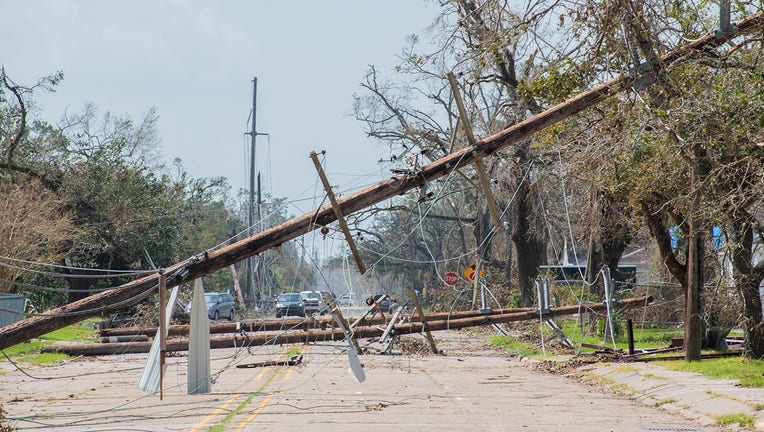Facing a natural disaster? Here's how to prepare your finances

When preparing for natural disasters, it is important to ensure you are financially prepared. Here are tips from the FDIC to get started. (iStock)
When it comes to preparing for natural disasters like hurricanes, earthquakes, floods and tornadoes, many Americans might primarily think of stocking up on food and water. They may also get a first-aid kit, batteries, a flashlight or even generators, but just as important as having supplies is preparing financially, according to the Federal Deposit Insurance Corp. (FDIC).
The FDIC offers several steps to consider when preparing your finances in the event of a natural disaster. If you've already been affected by a natural disaster – such as Hurricane Ida or Hurricane Nicholas – you can take out a home improvement loan to help repair damages. Visit Credible to find your personalized interest rate today while rates remain near record lows.
"It is important to prepare your financial impact of a natural disaster," the FDIC stated in its report. "These steps can help ease the challenge of restoring or replacing your property after a catastrophic event."
Here are some FDIC-recommended suggestions to consider in order to prepare financially before a natural disaster hits:
Keep important documents safe
In case of an emergency or natural disaster, it is important to keep sensitive information safe. These documents include original copies of essentials such as a driver’s license, passports, social security cards, and birth certificates. It is also important to keep contact information on hand for your banks or insurance companies, your current homeowners or renter's insurance policy, copies of medical information like insurance cards, prescription medications, health records and an inventory of valuable personal property.
The FDIC advised that these items should be kept in an emergency evacuation bag, stored electronically, or even stowed away in a safe deposit box at a bank.
Plans for property damage
Property damage can be handled through your insurance company. After the disaster occurs, a claims adjuster will visit the residence and assess the damage. It is essential to save all receipts of repairs made and take photos. Residents should keep their insurance information and phone numbers safe with their important documents.
For parts that are not covered by insurance, federal assistance is often available through the Federal Emergency Management Agency (FEMA). Consumers can also take advantage of today’s low interest rates to take out a personal loan for home repairs. Visit Credible to compare multiple lenders and choose the one with the best rates for you.
Paying your mortgage
After a natural disaster, paying your mortgage or other loan bills may become difficult. Homeowners should contact their loan servicer right away to discuss their options, and they can often qualify for forbearance programs while they get back on their feet.
For a permanent solution, homeowners can consider refinancing their home loan in today’s sub-3% interest rates to reduce their monthly payments by up to hundreds of dollars. Visit Credible to get prequalified in minutes without affecting your credit score.
Look out for scams
Many fraudsters take advantage of the chaos brought on by natural disasters to scam victims out of more money in their search to recover. Disaster victims should be cautious about accepting unsolicited aid or assistance, the FDIC explained. Ensure you use an official government organization when looking for disaster relief; you can see that you are using secure websites by ensuring it begins with "https" or is a ".gov" website before entering your information.
With a credit monitoring service, you can get instant alerts on late payments, fraudulent activities, credit score changes and more. Check out some of Credible's partners here.
Have a finance-related question, but don't know who to ask? Email The Credible Money Expert at moneyexpert@credible.com and your question might be answered by Credible in our Money Expert column.

